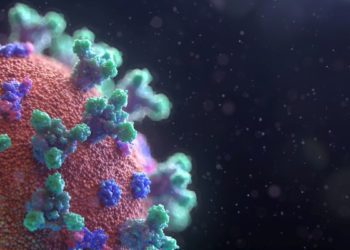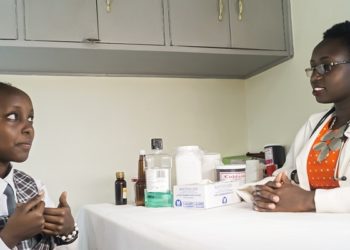Increasing the number of SARS-CoV-2 immune family members associated with decreasing risk of infection in nonimmune individuals
1. Individuals not immune to COVID-19 had at least a 45% decreased risk of COVID-19 infection if at least one family member was immune (through previous infection or two vaccine doses).
Evidence Rating Level: 2 (Good)
Study Rundown: SARS-CoV-2 is predominantly transmitted through person-to-person contact, rendering the spread of this virus through families a high source of transmission. Assessing the spread of this virus within families provides information regarding the risk of infection in nonimmune family members and the efficacy of mass vaccination campaigns. This retrospective, nationwide, Swedish cohort study examined the association between COVID-19 infection risk and the number of family members with known immunity (previous COVID-19 or two vaccine doses). This study included all individuals diagnosed with COVID-19 or vaccinated against COVID-19 until May 26, 2021; the cohort comprised 1 789 728 individuals from 814 806 families. The primary outcome was the incidence of COVID-19 infections in nonimmune family members. There was a significant inverse association between the number of immune family members and the risk of COVID-19 infection in nonimmune members, irrespective of family size. Compared to families with no immune members, nonimmune individuals in families with one immune member demonstrated a 45%-61% reduced risk of contracting COVID-19 (Hazard ratio [HR]: 0.39-0.55 [95% CI: 0.37-0.61]; p< 0.001), regardless of the size of the family. Nonimmune individuals in families with two immune members had a 75%-86% reduced risk (HR: 0.14-0.25 [95% CI: 0.11-0.27]; p< 0.001), three immune members had a 91%-94% reduced risk (HR: 0.06-0.09 [95% CI: 0.04-0.10]; p< 0.001), and four immune members had a 97% reduced risk (HR: 0.03 [95% CI: 0.02-0.05]; p< 0.001) of COVID-19 infection. The decreased risk of COVID-19 infection was similar whether family members were immune from a previous infection or vaccination. Overall, this cohort study demonstrated an increasingly reduced risk of COVID-19 infection in nonimmune individuals as the number of immune family members increased. Although this study implies decreased person-to-person spread of COVID-19 through immunity, such as through vaccinations, emerging, more transmissible variants are important to consider when evaluating the results of this study.
Click to read the study in JAMA Internal Medicine
Relevant Reading: Household transmission of SARS-CoV-2: a systematic review and meta-analysis
Image: PD
©2021 2 Minute Medicine, Inc. All rights reserved. No works may be reproduced without expressed written consent from 2 Minute Medicine, Inc. Inquire about licensing here. No article should be construed as medical advice and is not intended as such by the authors or by 2 Minute Medicine, Inc.







